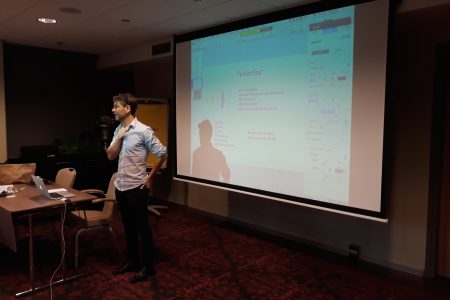Piloting FAIR metadata with iRODS and YODA at Leiden University
To make data FAIR, the corresponding metadata must be made FAIR as well. Leiden University is taking a concrete step towards FAIR metadata by participating in a national pilot on iRODS and YODA.
The FAIR (Findable, Accessible, Interoperable and Reusable) principles are a framework for researchers to make their scholarly output ready for use and reuse by machines and humans (including themselves and peers). Making scholarly output more FAIR provides a range of benefits to the research community, for example higher impact and improved accountability and reproducibility of research. Reusability by machines (machine-actionability) is becoming increasingly important as researchers rely more and more on computers to deal with the complexity, volume and pace in which data is created. Furthermore, the FAIR principles are an integral part of Open Science. Although there is no “O” for “Open” in FAIR, proponents of FAIR data emphasize that data should be as open as possible: access should only be restricted where necessary, for example due to legislation.
Universities must support their researchers to enable them to make their data available in a FAIR manner. To make data FAIR, the corresponding metadata must be made FAIR as well. A university must therefore provide services that allows the researchers to manage both the data and metadata in a FAIR manner.
Leiden University is taking a concrete step towards FAIR metadata by participating in a national pilot on iRODS and YODA. The pilot is organised with the support of SURF and Utrecht University. iRODS is open source data management software provided by the iRODS consortium. YODA is an open source graphical user interface developed by Utrecht University on top of iRODS tailored for research data management. Other universities that participate in this national pilot include EUR, TUD, TU/e, VU and WUR.
Researchers can upload their data in YODA and at the same time fill in the associated metadata, thus meeting FAIR principle F2 (Data are described with rich metadata). The great thing about YODA and iRODS is that this metadata is customisable, so that different disciplines can define the fields needed and thus meet FAIR principle R1.3 (Meta)data meets domain-relevant community standards. More about how YODA meets the FAIR principles has been published online by Utrecht University.
At Leiden University we are running multiple pilot projects, including one together with the Leiden University Centre for Linguistics (LUCL). The LUCL takes the opportunity to run the pilot for data that is already available but stored and described in a sub-optimal manner.
The pilot at Leiden University is carried out under the on-going programme Implementation Data Management. This is a collaboration between the unit Information Management at the Administration and Central Services, the Centre for Digital Scholarship (CDS) at UBL and the ICT Shared Service Center (ISSC). The pilots will run until the end of the year and the outcomes will be evaluated. Given a positive advice, follow-up projects will be launched next year for both IRODS and YODA with the ultimate goal to have a production-ready environment that is suitable for a wide range of disciplines.
For more information, please contact the CDS.





